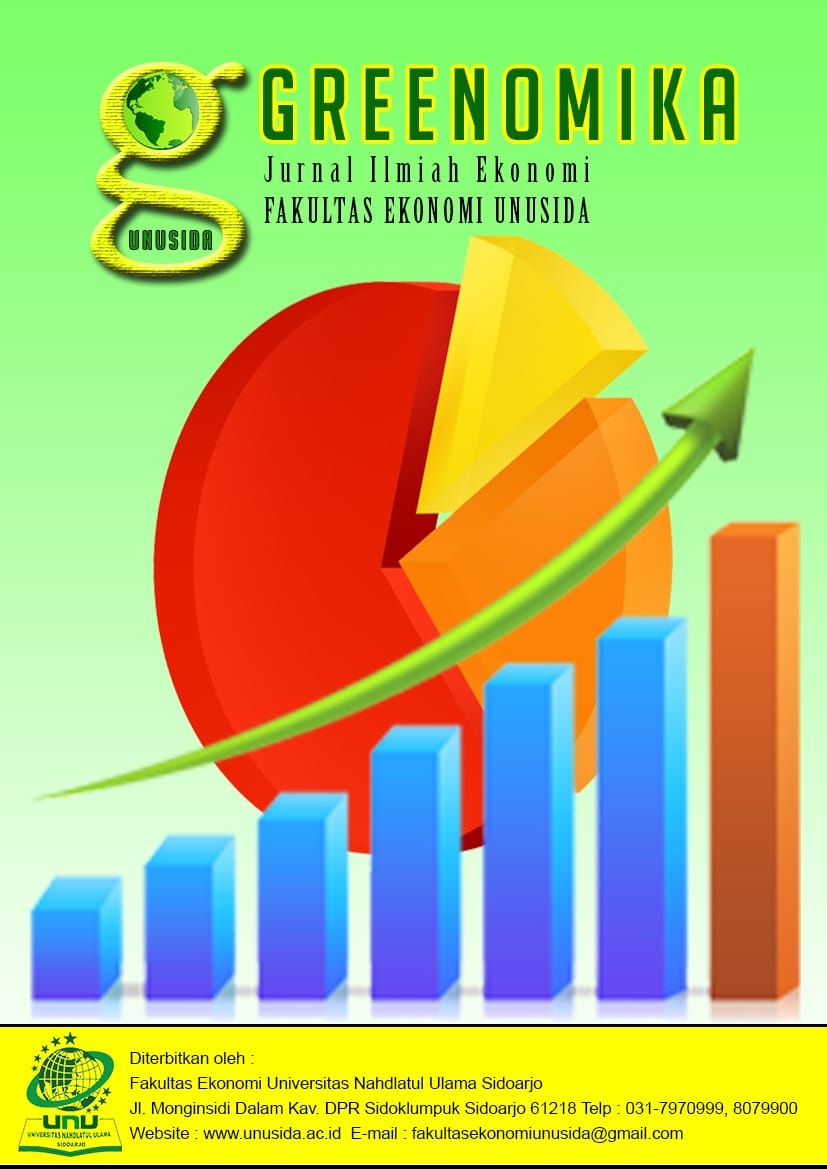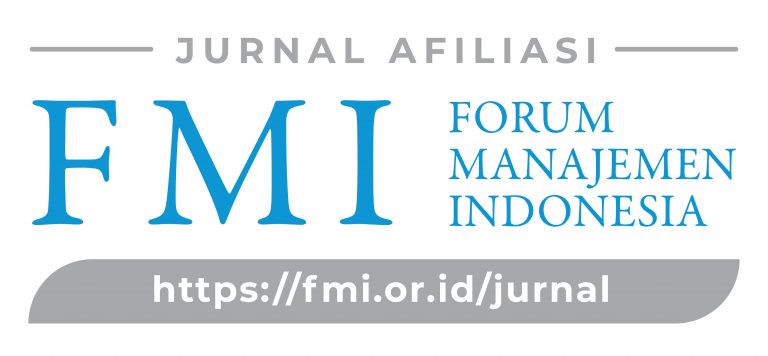The Impact of Managerial Ownership, Operating Cash Flow, and Sales Growth on Corporate Tax Avoidance
DOI:
https://doi.org/10.55732/unu.gnk.2025.07.1.3Keywords:
Managerial Ownership, Operating Cash Flow, Sales Growth, Tax AvoidanceAbstract
This study investigates the impact of managerial ownership, operating cash flow, and sales growth on corporate tax avoidance in energy sector firms listed on the Indonesia Stock Exchange from 2018 to 2022. The research is quantitative in nature and employs an associative approach. This study employs secondary data from 21 randomly selected companies, based on criteria including consistent listing on the Indonesian Stock Exchange during the research period and the publication of comprehensive financial statements. Data analysis was conducted utilising multiple linear regression via Stata software. The study's findings indicate that managerial ownership, operating cash flow, and sales growth have a partial positive impact on tax avoidance. These findings are consistent with agency theory, which holds that company actions, including tax policies, can be influenced by managerial ownership. The findings also show that financial considerations, like the availability of cash flow and sales growth are important drivers of tax avoidance.
References
Acock, A. C. (2018). A gentle introduction to Stata (6th edition). StataCorp LLC.
Adegbite, T. A., & Bojuwon, M. (2020). Corporate Tax Avoidance Practices: An Empirical Evidence from Nigerian Firms. Studia Universitatis Babes-Bolyai Oeconomica, 64(3), 39–53. https://doi.org/10.2478/subboec-2019-0014
Agarwal, S. (2020). Relationship between Managerial Ownership and Agency Cost (SSRN Scholarly Paper 3799983). Social Science Research Network. https://papers.ssrn.com/abstract=3799983
Alkurdi, A., Almarayeh, T., Bataineh, H., Amosh, H. A., & Khatib, S. F. A. (2023). Corporate profitability and effective tax rate: The moderating role of board gender diversity. Journal of Islamic Accounting and Business Research, 15(1), 153–171. https://doi.org/10.1108/JIABR-05-2022-0122
Amarsanaa, N. (2019). The Relationship Between Managerial Ownership and Earnings Management—Evidence from Mongolian Listed Firms (SSRN Scholarly Paper 3360342). Social Science Research Network. https://doi.org/10.2139/ssrn.3360342
Arianpoor, A., & Mehrfard, N. (2022). The impact of managerial attributes on cash holding and investment efficiency and the mediator role of cash holding. Journal of Islamic Accounting and Business Research, 14(4), 610–628. https://doi.org/10.1108/JIABR-02-2022-0046
Armstrong, C. S., Blouin, J. L., Jagolinzer, A. D., & Larcker, D. F. (2015). Corporate governance, incentives, and tax avoidance. Journal of Accounting and Economics, 60(1), 1–17. https://doi.org/10.1016/j.jacceco.2015.02.003
Dakhli, A. (2021). The impact of ownership structure on corporate tax avoidance with corporate social responsibility as mediating variable. Journal of Financial Crime, 29(3), 836–852. https://doi.org/10.1108/JFC-07-2021-0152
Dias, P. J. V. L., & Reis, P. M. G. (2018). The relationship between the effective tax rate and the nominal rate. Contaduría y Administración, 63(2), 970–990.
Eisenhardt, K. M. (1989). Agency Theory: An Assessment and Review. The Academy of Management Review, 14(1), 57–74. https://doi.org/10.2307/258191
Gebhart, M. S. (2017). Measuring Corporate Tax Avoidance – An Analysis of Different Measures. Junior Management Science, 2(2), Article 2. https://doi.org/10.5282/jums/v2i2pp43-60
Guenther, D. A., Njoroge, K., & Williams, B. (2017). Use of Increased Operating Cash Flow by Firms that Avoid Taxes (SSRN Scholarly Paper 3013215). Social Science Research Network. https://doi.org/10.2139/ssrn.3013215
Halim, K. I. (2021). Pengaruh arus kas operasi, pertumbuhan perusahaan, leverage dan profitabilitas terhadap konservatisme akuntansi. JAZ:Jurnal Akuntansi Unihaz, 4(1), 37. https://doi.org/10.32663/jaz.v4i1.2086
Halim, K. I. (2024). A Dynamic Approach to Understanding Business Performance. Journal of Distribution Science, 22(6), 1–10. https://doi.org/10.15722/jds.22.06.2024.06.1
Ilkhechi, O. H., & Khatibi, S. A. (2020). The Impact of Earnings Persistence on the Operating Cash Flows with Emphasis on Financial Constraints. International Journal of Business and Administrative Studies, 6. https://doi.org/10.20469/ijbas.6.10004-5
Jensen, M. C., & Meckling, W. H. (1976). Theory of the firm: Managerial behavior, agency costs and ownership structure. Journal of Financial Economics, 3(4), 305–360. https://doi.org/10.1016/0304-405X(76)90026-X
Kwon, T. H., Bae, S. C., & Park, S. (2018). Corporate Diversification, Sales Growth, and Capital Market Development: Cross-Country Evidence (SSRN Scholarly Paper 3424426). Social Science Research Network. https://doi.org/10.2139/ssrn.3424426
Mukhtar, M. (2021). The Effect of Transfer Pricing, Leverage, and Sales Growth on Tax Avoidance (SSRN Scholarly Paper 3867195). Social Science Research Network. https://doi.org/10.2139/ssrn.3867195
Niandari, N., Yustrianthe, R. H., & Grediani, E. (2020). Kepemilikan Manajerial dan Praktik Penghindaran Pajak: Studi pada Perusahaan Manufaktur terdaftar di BEI Periode Tahun 2015-2017. Owner : Riset Dan Jurnal Akuntansi, 4(2), Article 2. https://doi.org/10.33395/owner.v4i2.250
Ningsih, I. A. M. W., & Noviari, N. (2022). Financial Distress, Sales Growth, Profitabilitas dan Penghindaran Pajak. E-Jurnal Akuntansi, 32(1), 229–244. https://doi.org/10.24843/EJA.2022.v32.i01.p17
Nurmalina, R. (2023). The Effect of Profitability, Leverage, and Operating Cash Flow on Tax Avoidance in Manufacturing Companies in the Various Industries Sector. Indonesian Journal of Economics and Management, 4(1), Article 1. https://doi.org/10.35313/ijem.v4i1.5252
Pandia, N. E. B., & Meilani, Y. C. F. P. (2024). The Effect of Transformational Leadership on Performance of Organizations: A Review of Systematic Literature Across Different Sectors. GREENOMIKA, 6(1), Article 1. https://doi.org/10.55732/unu.gnk.2024.06.1.1
Paramitha, N., & Kurnia, K. (2023). Operating Cash Flows, Foreign Ownership, and Solvency on Tax Avoidance. Jurnal Akuntansi, 15(2), Article 2. https://doi.org/10.28932/jam.v15i2.6824
Safitri, N., & Damayanti, T. W. (2021). Sales Growth dan Tax Avoidance dengan Kepemilikan Institusional Sebagai Variabel Pemoderasi. Perspektif Akuntansi, 4(2), Article 2. https://doi.org/10.24246/persi.v4i2.p175-216
Tang, Y., Liu, Y., Liu, J., & Li, W. (2019). Does More Managerial Power Impede or Promote Corporate Tax Avoidance? Evidence from Listed Chinese Companies. Sustainability, 11(7), Article 7. https://doi.org/10.3390/su11071914
Wahab, A. N. S., & Holland, K. (2012). Tax planning, corporate governance and equity value. The British Accounting Review, 44(2), 111–124. https://doi.org/10.1016/j.bar.2012.03.005
Wales, W., Beliaeva, T., Shirokova, G., Stettler, T. R., & Gupta, V. K. (2020). Orienting toward sales growth? Decomposing the variance attributed to three fundamental organizational strategic orientations. Journal of Business Research, 109, 498–510. https://doi.org/10.1016/j.jbusres.2018.12.019
Wardani, D. M. K., & Nugrahanto, A. (2022). Pengaruh book-tax differences, accrual, dan operating cash flow terhadap upaya penghindaran pajak. JURNAL PAJAK INDONESIA (Indonesian Tax Review), 6(1), Article 1. https://doi.org/10.31092/jpi.v6i1.1721
Wulandari, N. I., Agustina, H., & Soelistya, D. (2024). The Effect of Profitability, Leverage, Fixed Asset Intensity, Company Size, and Company Age Partially on Tax Avoindance. GREENOMIKA, 6(1), Article 1. https://doi.org/10.55732/unu.gnk.2024.06.1.8
Wulansari, D. P. A., & Nugroho, A. H. D. (2023). Pengaruh Komisaris Independen, Sales Growth, Profitabilitas, Firm Size dan Kepemilikan Institusional terhadap Tax Avoidance. Owner : Riset Dan Jurnal Akuntansi, 7(3), Article 3. https://doi.org/10.33395/owner.v7i3.1490
Yolanda, Y., & Zahran, W. S. (2024). Pengaruh Profitabilitas, Leverage Dan Arus Kas Operasi Terhadap Penghindaran Pajak (Studi Kasus Pada Perusahaan Sektor Perbankan Yang Terdaftar Di Bursa Efek Indonesia Tahun 2021-2023). Jurnal Ilmu Administrasi Publik, 4(6), 521–530. https://doi.org/10.31334/jiap.v4i6.4408
Yusuf, I., & Achmad, Z. (2023). The Effect of Profitability, Size, Sales Growth, Asset Structur and Liquidity on Capital Structure. GREENOMIKA, 5(2), Article 2. https://doi.org/10.55732/unu.gnk.2023.05.2.8
Downloads
Published
Issue
Section
License
Copyright (c) 2025 Kusuma Indawati Halim, Novianty Novianty

This work is licensed under a Creative Commons Attribution-NonCommercial 4.0 International License.
Authors who publish with this journal agree to the following terms:
Authors retain copyright and grant the journal right of first publication with the work simultaneously licensed under a Creative Commons Attribution License that allows others to share the work with an acknowledgement of the work's authorship and initial publication in this journal.
Authors are able to enter into separate, additional contractual arrangements for the non-exclusive distribution of the journal's published version of the work (e.g., post it to an institutional repository or publish it in a book), with an acknowledgement of its initial publication in this journal.
Authors are permitted and encouraged to post their work online (e.g., in institutional repositories or on their website) prior to and during the submission process, as it can lead to productive exchanges, as well as earlier and greater citation of published work (See the Effect of Open Access).
















